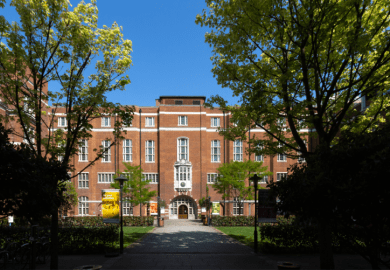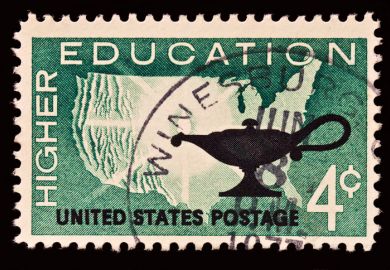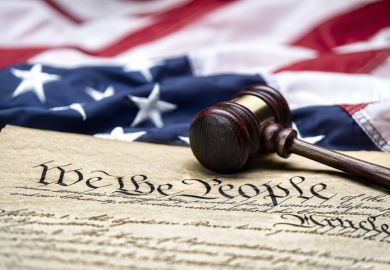The Victorian zoologist Thomas Henry Huxley, and the building named after him, has been central to Imperial College London’s recent historical introspection about its links to the British empire. “We will find new, prominent ways of ensuring that the complexities of key figures are fully understood alongside the College’s values,” the president’s board concluded.
Some will no doubt see this conclusion as an evasion and insist that Huxley should unequivocally be condemned and memorials to him erased. But I disagree. This is not just a compromise. It’s a useful way forward.
I’ve lived with T. H. Huxley and his dynasty for a decade now – with their scientific and private papers, their poems and their novels, their grandiose claims about nature, and their earnest, learned concern for past and future humans and other animals.
None of the Huxleys was moderate: neither Thomas, “Darwin’s bulldog”, nor his grandsons, biologist Julian and literary giant Aldous. Contrary to their own personalities, however, the Huxleys can moderate, qualifying rather than polarising current debates on historical responsibility.
Historians of science have been critiquing deep racism for decades. My own faltering early contribution was an undergraduate essay on “science, racism and imperialism” in 1984. It was easy enough to identify Huxley’s bigotry, not least in his 1865 essay “Emancipation – Black and White”. Enslaved people in the US and women in the UK might very well seek and even be granted freedoms of various kinds, he concluded, towards the end of the American Civil War (in which his own nephew fought for the Confederates), but a biological inequality would likely return to keep different kinds of humans in their place.
Do we need to keep reminding each other that even the most ardent stickler for evidence in the mid-19th century repeated such egregious presumptions? Yes. But is that the limit of a historian’s research task or capacity or contribution? I would hope not. And that is not least because Huxley’s views on race-related topics are confoundingly complex.
For instance, in the very year that he wrote his “Emancipation” piece, he damned Governor Eyre’s violent suppression of the Morant Bay rebellion in Jamaica: a revolt against poverty and injustice by a formerly enslaved population. He was also opposed to slavery in the US (his arguments are rather like Abraham Lincoln’s), and London abolitionists claimed him as one of their own, publishing – again, in 1865 – a tract called Professor Huxley on the Negro Question. The common presumption that “anti-slavery” can easily be equated historically to “anti-racist” is one of the more dissatisfying elements of current debate.
Contemporary critiques of scientific racism often assume their own novelty. Yet all too often they elide the very histories of anti-racism on which they are built. Even in 1984, my critique was old. Julian Huxley himself had developed it in the 1960s. He made plain the connection between the biology developed by his grandfather’s generation and the racist excesses of Nazi Germany, 1930s Japan and 1960s South Africa. He named the naivety and arrogance that presumes the superiority of one’s own people – a superiority subscribed to by Darwin and the Origin of Species author’s statistician-explorer half-cousin, Francis Galton. And he exposed this biologically justified racism in his own time, identifying it first in the Bible, then the Dutch Reformed Church in South Africa and in apartheid architect Hendrik Verwoerd’s denial of human rights to black South Africans.
Does this make Julian Huxley a model anti-racist? Hardly. He delivered this critique in his 1962 Galton Lecture to the Eugenics Society – as president, no less. Unlike his grandfather, he fully subscribed to the scientific programme of human improvement – and thought eugenics needed rescuing after the Nazi era. This was largely because, for him, it was not about biological “race” in the first place.
Still, there’s no doubt that Julian Huxley was a major 20th-century anti-racist. We owe a lot to him, not least those inverted commas around “race”, which he introduced with the anti-imperialist anthropologist Alfred Cort Haddon in the mid-1930s. One thing I’ve learned since writing that undergraduate essay decades ago is that anti-racism has a history, too, and it’s fascinating, often entirely counter-intuitive and far from comfortable.
On one measure, as Julian Huxley stated, the commonly claimed link between Darwin’s Descent of Man or Huxley’s Man’s Place in Nature and the worst manifestations of 20th-century biological justifications of inequality is not inaccurate. But simply to repeat this exposé can be superficial and sensationalist. It is as historically insufficient as it is politically usable (for anti-evolutionists as much as for anti-racists).
As a historian of science and medicine, exposing historical actors who fell below our standards holds far less intellectual interest for me than it used to. It is right that individuals and institutions are being held to account, but the exposés are rarely original. I am now more driven to explain, even if that is sometimes taken as “explaining away”.
For a historian, the most gripping work does not entail vindicating or impeaching, but exploring how and why. This requires historicising anti-racism, too.
Alison Bashford is author of An Intimate History of Evolution: The Story of the Huxley Family (Allen Lane, 2022). She is Laureate professor of history at UNSW Sydney. In 2021, she was awarded the Dan David Prize for the history of medicine.
Register to continue
Why register?
- Registration is free and only takes a moment
- Once registered, you can read 3 articles a month
- Sign up for our newsletter
Subscribe
Or subscribe for unlimited access to:
- Unlimited access to news, views, insights & reviews
- Digital editions
- Digital access to THE’s university and college rankings analysis
Already registered or a current subscriber? Login








